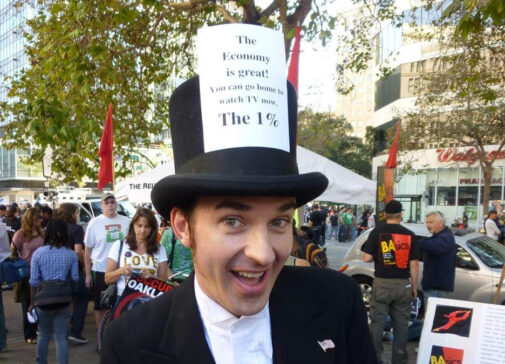It’s been over 100 days since Donald Trump’s return to the presidency. Most NGOs to the right of the Heritage Foundation are alarmed about his confrontational international posture and related erosion of the rule of law.
Human Rights Watch (HRW), a supposedly liberal organization, is also concerned. But their problem is that the president hasn’t gone far enough – at least in the case of Venezuela. HRW’s latest report on Venezuela calls for intensified illegal measures that cause misery and death, outflanking Trump from the right.
Ignoring the US hybrid war
At issue for HRW is last July’s Venezuelan presidential election that saw Nicolás Maduro declared the winner. Beyond issues with supposed electoral irregularities lies the elephant in the room that is utterly disregarded by HRW. The US hybrid war against Venezuela was the biggest obstacle to free and fair elections. Venezuelans were under economic siege with coercive measures aimed at pressuring them into backing the US-backed opposition.
Also telling is the opposition’s refusal to submit their electoral records to the Venezuelan supreme court, when summoned to do so because they do not recognize the constitutional order in Venezuela. Legally, there was no way for them to claim victory even if they had legitimately won.
Post-election protest demonstrations were predictable. The opposition, which has a long history of anti-democratic street violence, threatened them if it lost. HRW characterizes the riots as mostly peaceful, while accusing the government of responding with a “brutal crackdown.”
Yet the widespread damage of public property such as health clinics, government offices, schools, and transportation facilities – along with murders of government security personnel and party members – were inconvenient facts entirely ignored in HRW’s over 100-page report. Such actions can hardly be called peaceful, nor blamed on the government.
A cure worse than the disease
For argument’s sake, let’s not contest HRW’s claim that the books were cooked in Venezuela’s presidential election in order to examine the NGO’s solution.
On April 29, the US State Department celebrated 100 days of “America first” accomplishments, highlighting the revocation of oil importing licenses and the establishment of potential secondary tariffs on countries that still dare to import Venezuelan oil.
The next day, HRW’s report demanded even harsher punishment. Frustrated that the “Trump administration appears to be prioritizing cooperation” with Venezuela, HRW called for expanding sanctions and deepening pressure. And this is despite Washington’s plans to further maximize its maximum pressure campaign to achieve regime change in Caracas.
Specifically, HRW urged the US and other states to “counter Maduro’s domestic carrot-and-stick incentives that reward abusive authorities and security forces, making them loyal to the government” by imposing even more “targeted sanctions.”
Further compounding the impact of individual targeted sanctions is the reality of overcompliance. Even individual sanctions end up contributing to collective punishment. A 2019 statement by HRW recognized that “despite language excluding transactions to purchase food and medicines, these sanctions could exacerbate the already dire humanitarian situation in Venezuela due to the risk of overcompliance.”
But now the 1,028 existing unilateral coercive measures (the correct term for sanctions) on Venezuela by the US and its allies apparently aren’t enough for these sadists.
HRW admits that these coercive measures have “failed to make a dent” in correcting what they see as bad behavior. Why then persist if ineffective? Perhaps, because they’re very effective in punishing errant states and warning others.
HRW also lobbied for yet more foreign intervention in Venezuela’s internal affairs: “Foreign governments should expand support for Venezuelan civil society groups… a sustained and principled international response is crucial.”
Selective sanctimony on sanctions
HRW criticized the Trump administration’s sanctions targeting the International Criminal Court (ICC) because they might potentially “chill” the tribunal’s ardor to go after Venezuela.
Revealingly, this particular HRW report shows no concern that Trump’s sanctions might stifle the court’s prosecution of the US/Zionist genocide in Palestine. What HRW is instead focused on is having the court “prioritize its investigation” of Venezuela.
HRW never mentions in this report that the US does not accept the ICC’s jurisdiction over itself. In other words, this report fails to criticize Washington’s evading accountability as long as the ICC can be weaponized against Venezuela.
The ICC has, in fact, been blatantly politicized regarding Venezuela. Caracas has requested in vain that the ICC investigate US coercive measures that have caused over 100,000 civilian deaths in Venezuela, constituting a crime against humanity.
The HRW report is sanctimonious about the “brave efforts of [opposition] Venezuelans who risked—and often suffered,” but is callously unsympathetic regarding the devastating effects on the population at large of the very measures it is advocating.
HRW laments the US administration’s cutting funding to astroturf “humanitarian and human rights groups” promoting regime change in Venezuela. But it does not express sympathy for ordinary Venezuelans suffering economic hardship, food insecurity, or lack of medicine due to broader US sanctions. Notably absent from this report is acknowledgement of the humanitarian consequences of Washington’s unilateral coercive measures.
The human rights organization’s primary critique of the enormous humanitarian toll of the unilateral coercive measures is that they have “failed to produce a transition.”
Sanctions kill
The HRW report frames US sanctions as supposedly justified efforts to enforce imperial restrictions on Venezuela and not as part of a regime-change hybrid war.
As Venezuelanalysis reported: “US economic sanctions against Venezuela are a violent and illegal form of coercion, seeking regime change through collective punishment of the civilian population.” Investigations by the UN’s high commissioner for human rights found “sanctions that threaten people’s lives and health need to be halted.”
Even HRW’s own World Report 2022 cited UN findings that sanctions had exacerbated Venezuela’s economic and social crises. Yet HRW apparently considers the burden warranted, which invokes Madeleine Albright’s infamous defense of Iraq sanctions: “we think the price is worth it.”
Follow-the-flag humanitarianism
HRW has long maintained a “revolving door” relationship with the US government personnel. The organization is also significantly associated with George Soros and his Open Society Foundations. UN Independent Expert and human rights scholar Alfred de Zayas describes how HRW and similar NGOs have become part of what he calls the “human rights industry,” instrumentalizing human rights for geopolitical agendas.
Unilateral coercive measures are a major component of the US imperial tool kit. But HRW opportunistically fails to note that such sanctions are illegal under international law. In fact, Article 33 of the Fourth Geneva Convention prohibits collective penalties against protected persons.
As Mark Weisbrot with the Center for Economic and Policy Research observes, HRW has “ignored or paid little attention to terrible crimes that are committed in collaboration with the US government in this hemisphere,” while it “has repeatedly and summarily dismissed or ignored sincere and thoroughly documented criticisms of its conflicts of interest.”
HRW recognizes that the coercive measures against Venezuela, which impact the general populace, have not succeeded in imposing an administration subservient to Washington – what they euphemistically call “restoration of democracy.” So why continue advocating more sanctions and support for Venezuela’s far-right opposition? The answer is that Washington’s NGO epigones talk “reform” but aim at fomenting insurrectionary regime change.
The post Human Rights Watch Outflanks Trump first appeared on Dissident Voice.This post was originally published on Dissident Voice.
 Boycott Avelo Airlines protest, Santa Rosa Airport, CA, April 26. (Photo by Roger D. Harris)
Boycott Avelo Airlines protest, Santa Rosa Airport, CA, April 26. (Photo by Roger D. Harris) Boycott Avelo Airlines protest, New Haven Airport, CT, April 17. (Photo by Henry Lowendorf)
Boycott Avelo Airlines protest, New Haven Airport, CT, April 17. (Photo by Henry Lowendorf) Boycott Avelo Airlines protest, Santa Rosa Airport, CA, April 26. (Photo by Roger D. Harris)
Boycott Avelo Airlines protest, Santa Rosa Airport, CA, April 26. (Photo by Roger D. Harris)










